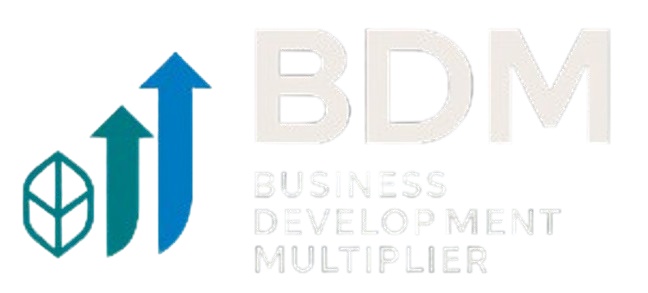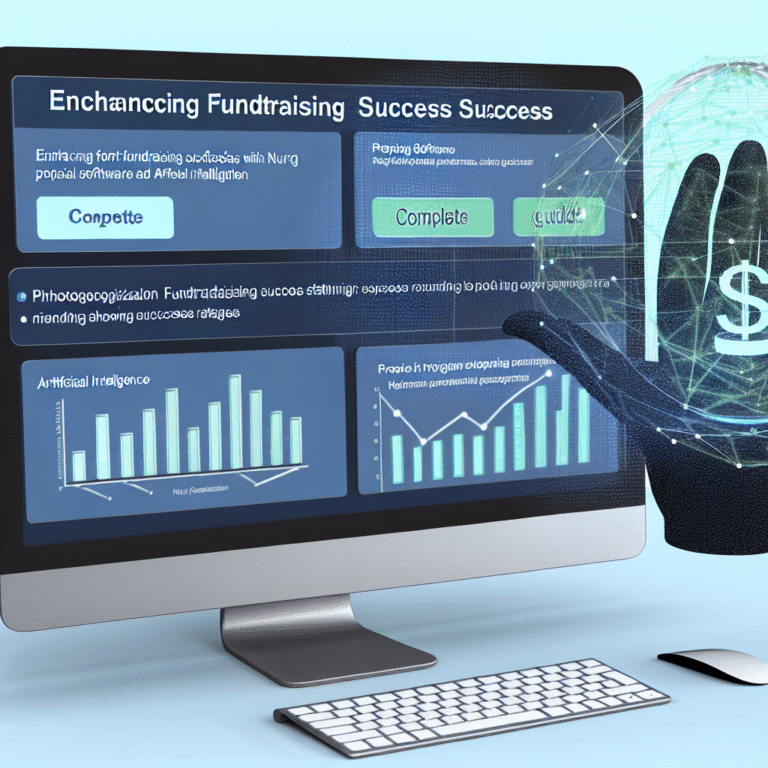Unlocking Success with Proposal Automation: How AI-Powered RFP Response Agents Can Transform Your Fundraising Efforts
Estimated reading time: 8 minutes
Key Takeaways
- Proposal automation leverages AI to streamline grant writing and RFP responses.
- AI-powered tools can significantly reduce manual workload and errors.
- Implementing proposal automation can lead to higher success rates in fundraising efforts.
- Understanding and addressing implementation challenges is crucial for success.
- Future trends include enhanced AI integration and predictive analytics.
Table of Contents
- Unlocking Success with Proposal Automation: How AI-Powered RFP Response Agents Can Transform Your Fundraising Efforts
- Key Takeaways
- The Growing Pains of Traditional Grant Writing
- Understanding Today’s Grant Writing Landscape
- The Power of Proposal Automation
- How AI-Powered RFP Response Agents Transform the Process
- The Benefits of Implementation
- Winning More RFPs Through AI Assistance
- Implementation Strategy
- Navigating Common Challenges
- Future Trends in Proposal Automation
- Conclusion
- Take Action Today
- Frequently Asked Questions
In today’s competitive fundraising landscape, proposal automation has emerged as a game-changing solution for organizations struggling with the complex demands of grant writing and RFP responses. By leveraging AI-powered tools, proposal automation streamlines and revolutionizes the entire process of creating, reviewing, and submitting proposals, particularly when responding to Requests for Proposals (RFPs).
The Growing Pains of Traditional Grant Writing
For fundraising managers and proposal leads, the traditional approach to grant writing presents numerous challenges. Limited time, overwhelming workloads, and the complexity of handling multiple concurrent RFPs create significant strain on already stretched resources. The manual process is not only time-consuming but also prone to errors and inconsistencies, ultimately impacting success rates and organizational growth.
https://www.templafy.com/what-is-proposal-automation-and-the-10-best-tools-in-2024/
Understanding Today’s Grant Writing Landscape
Traditional grant writing methods heavily rely on manual processes that demand extensive research, meticulous drafting, and complex administrative coordination. Each proposal requires significant effort to:
- Tailor narratives to specific funders
- Gather and organize documentation
- Ensure compliance with varying requirements
- Coordinate multiple stakeholders
- Maintain consistency across submissions
This resource-intensive approach often leads to:
- Workflow bottlenecks
- Submission delays
- Increased error rates
- Missed opportunities
- Inconsistent messaging
The competitive environment, which often requires organizations to respond to multiple RFPs simultaneously, only amplifies these challenges.
https://www.responsive.io/blog/proposal-automation
The Power of Proposal Automation
Proposal automation represents a paradigm shift in how organizations approach grant writing and RFP responses. At its core, it’s the systematic use of software to automate the entire proposal lifecycle, from initial creation through final delivery. This technology-driven approach:
- Eliminates repetitive manual tasks
- Standardizes proposal formatting
- Ensures consistent messaging
- Enables rapid response capabilities
- Maintains quality control
The role of grant writing AI is particularly crucial, as it leverages machine learning to:
- Generate relevant content [Transforming B2B Marketing with SEO Blog Automation]
- Recommend optimal responses
- Analyze funder criteria
- Ensure proposal alignment with requirements
https://www.templafy.com/what-is-proposal-automation-and-the-10-best-tools-in-2024/
How AI-Powered RFP Response Agents Transform the Process
Modern AI-driven RFP response agents operate through sophisticated mechanisms that revolutionize proposal creation:
Data Analysis and Processing
- Scan and interpret RFP requirements
- Match organizational capabilities with funder needs
- Identify key success factors
- Process historical proposal data
Smart Template Generation
- Create customizable, dynamic templates
- Maintain brand consistency
- Enable rapid customization
- Ensure compliance with funder requirements
Intelligent Collaboration Features
- Enable real-time team coordination
- Streamline approval processes
- Track progress automatically
- Facilitate version control
Advanced Customization Capabilities
- Tailor content to specific funders
- Adjust language and tone automatically
- Insert relevant case studies and examples
- Optimize formatting for different submission requirements
https://www.responsive.io/blog/proposal-automation
The Benefits of Implementation
Organizations implementing proposal automation experience significant advantages:
Time Efficiency
- Reduce proposal creation time by up to 80%
- Eliminate repetitive tasks [Transforming B2B Marketing with SEO Blog Automation]
- Enable faster response to opportunities
- Free staff for strategic activities
Enhanced Accuracy
- Minimize human error
- Ensure consistent messaging
- Maintain compliance with requirements
- Improve quality control
Increased Scalability
- Handle multiple RFPs simultaneously
- Expand proposal capacity
- Maintain quality at scale
- Optimize resource allocation
Cost Reduction
- Lower administrative costs
- Reduce error-related expenses
- Improve resource utilization
- Increase ROI on proposal efforts
https://www.templafy.com/what-is-proposal-automation-and-the-10-best-tools-in-2024/
Winning More RFPs Through AI Assistance
The integration of grant writing AI significantly improves proposal success rates:
Data-Driven Approach
- Leverage historical success data
- Identify winning patterns
- Optimize response strategies
- Track performance metrics
Enhanced Personalization
- Tailor proposals to specific funders [Transforming Outbound Efforts with AI Lead Generation]
- Align with donor priorities
- Customize language and tone
- Include relevant case studies
Quality Improvement
- Ensure consistent messaging
- Maintain professional standards
- Follow best practices
- Incorporate successful elements
Success stories show organizations achieving up to 80% automation in RFP responses while improving accuracy and win rates.
https://www.responsive.io/blog/proposal-automation
Implementation Strategy
To successfully implement proposal automation:
Assessment Phase
- Evaluate current processes
- Identify pain points
- Set clear objectives
- Define success metrics
Tool Selection
- Research available solutions
- Assess integration requirements
- Consider scalability needs
- Evaluate security features
Implementation Steps
- Start with pilot projects
- Provide comprehensive training
- Establish new workflows
- Monitor and adjust processes
- Gather feedback and optimize
Best Practices
- Engage stakeholders early [Transforming Outbound Efforts with AI Lead Generation]
- Maintain clear communication
- Document processes
- Regular system updates
https://www.templafy.com/what-is-proposal-automation-and-the-10-best-tools-in-2024/
Navigating Common Challenges
Address potential obstacles through:
Change Management
- Develop comprehensive training programs
- Create support systems
- Establish clear protocols
- Monitor adoption rates
Security Considerations
- Implement robust data protection
- Ensure regulatory compliance
- Regular security audits
- Access control measures
Technical Integration
- Seamless system integration
- Data migration planning
- Technical support access
- Regular maintenance schedules
https://www.responsive.io/blog/proposal-automation
Future Trends in Proposal Automation
The future of proposal automation promises even greater capabilities:
Enhanced AI Integration
- Advanced natural language processing
- Improved content generation [Transforming B2B Marketing with SEO Blog Automation]
- Better understanding of context
- More sophisticated analytics
Predictive Analytics
- Win probability assessment
- Strategic recommendation engines
- Performance forecasting
- Trend analysis
Personalization Advances
- Deeper donor insights
- More nuanced customization
- Better relationship management
- Enhanced engagement tracking
Conclusion
Proposal automation, powered by grant writing AI, represents a transformative opportunity for organizations seeking to enhance their fundraising success. By streamlining processes, improving accuracy, and enabling scalability, these tools help organizations win more RFPs while reducing resource strain.
The future of successful fundraising lies in embracing these technological advances. Organizations that adopt proposal automation position themselves for greater success in an increasingly competitive funding landscape.
Take Action Today
Ready to transform your proposal process? Take the first step:
- Request a demo of leading proposal automation tools
- Schedule a consultation with automation experts
- Subscribe to our newsletter for the latest insights
- Join our community of successful fundraisers




